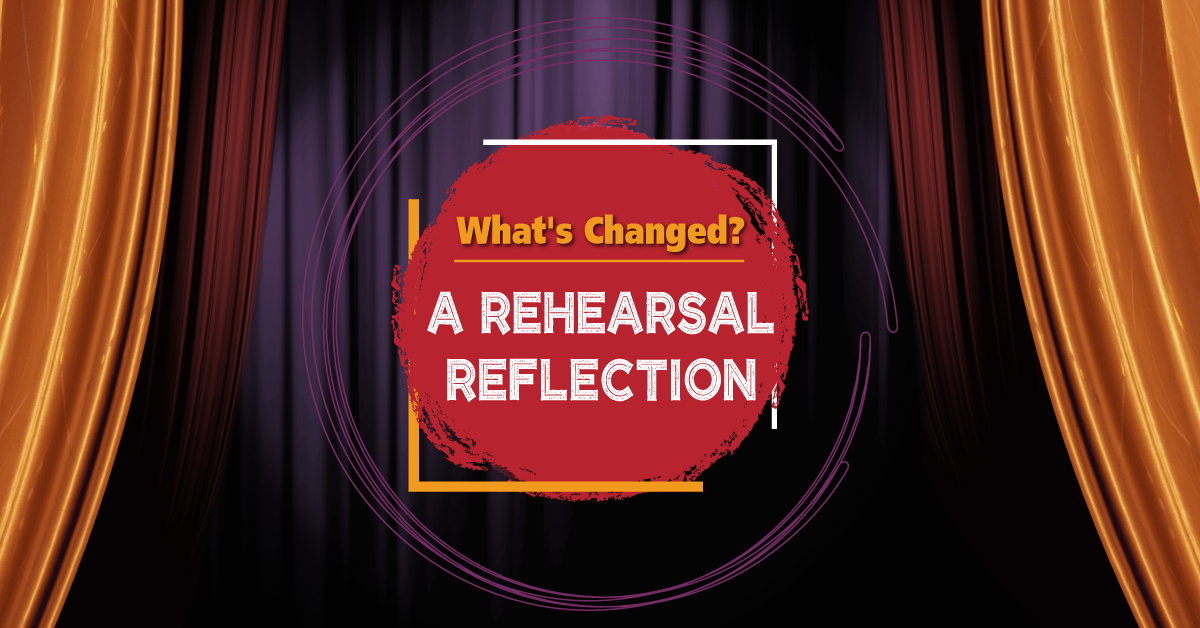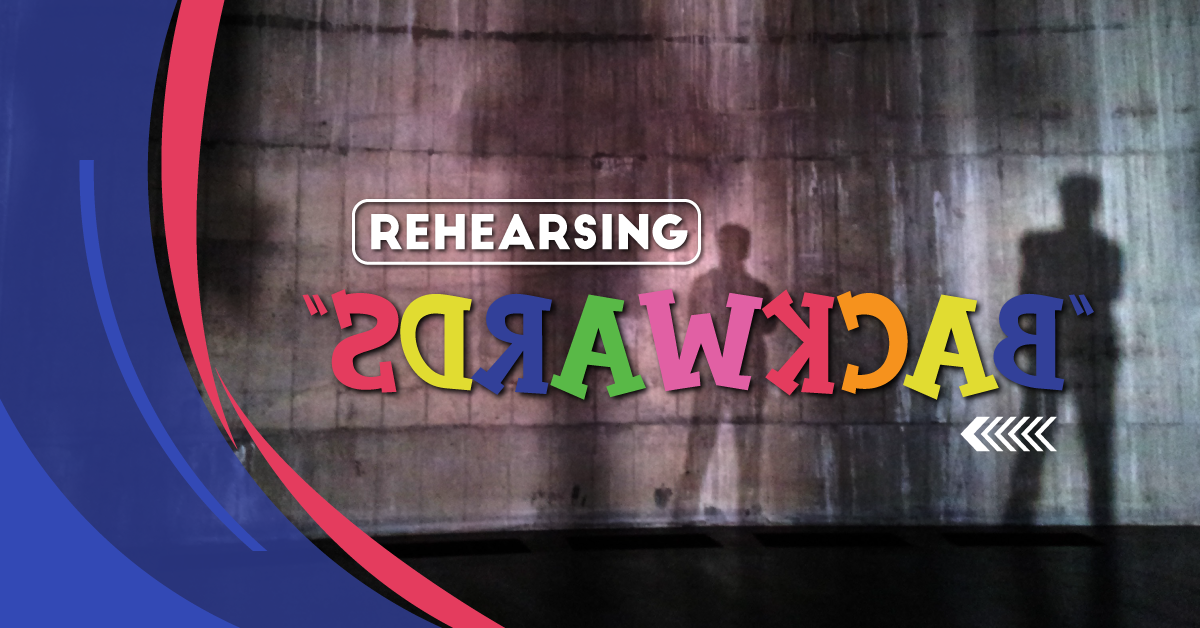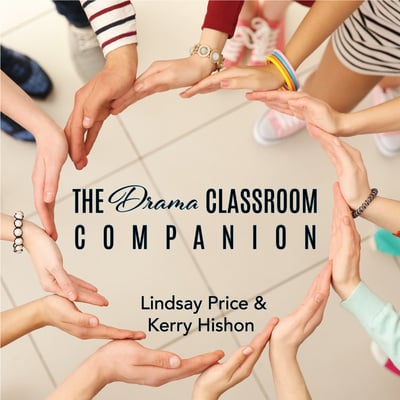Agatha Rex by Lindsay Price is a bold high school take on Antigone - packed with heart, conflict, and a powerhouse ensemble. One girl. One stand. One huge risk. *NEW COMPETITION VERSION AVAILABLE!*
What’s Changed? A Rehearsal Reflection
Countless hours are spent in rehearsal: learning, reviewing, and practicing material.
Let’s focus on the first aspect: learning.
At the beginning of the rehearsal process, everything is new. From the content of the play to insights about the character, students discover new and exciting things during each rehearsal.
Then, near the end of the rehearsal process, all sorts of other new aspects pop up: props and costumes; working with sets, lights, sound effects, and music; making discoveries and changes when students are actually on the stage instead of in a rehearsal room.
But what about the period in the middle of the rehearsal process? That’s where things tend to get a little blurry – students are still learning their blocking and developing their characters, but the newness of the show has worn off and opening night seems far away.
How can we keep our students on track and keep them moving forward in a positive way?
When approaching a scene, directors often focus on what has changed from the beginning of the scene to the end of the scene. What happened? What new information have the characters learned? What is different? This pushes the action forward. We can take that similar thought process and apply it to the actual practical work that is being done in rehearsals.
Encourage students to continue to focus on “newness.” Your students’ goal at every rehearsal should be to come away with something new, something different, or something that has evolved or changed.
Thinking about what has changed at each rehearsal helps students to heighten their awareness of what’s going on around them. It encourages them to keep a curious and open mind when approaching their rehearsal work. This could be artistic or theatrical – something related to their character, or something they have discovered about the show in general. Or it could be practical, such as a new rehearsal technique, or a new theatrical skill that they’ve learned that will benefit them in future rehearsals.
Focusing on what has changed can be challenging, because it’s going much deeper into self-reflection. This takes courage. Acknowledging what has changed since their last rehearsal forces students to take responsibility for their own learning and development. Students must look honestly at their rehearsal habits and effort given to figure out what they’ve learned and what has changed. If they feel that they aren’t growing and changing, then why is this not happening?
What has changed is going to be different from student to student, and will have different effects on each student. Learning a new piece of choreography may be no big deal to one student, but to another student it may be a huge success.
Not all changes are going to be big ones, but students should not discredit or judge what they learned. (Oftentimes, a series of small learned lessons grows into a big breakthrough!)
It’s also important for students to acknowledge their failures as well as their successes. If they had a bad rehearsal, what did they learn from it? How can that negative experience be turned into a positive, or at least be used to increase the potential for success in a future rehearsal?
Use the Reflection questions below to help students think about the work they’ve done in each rehearsal.
Have students keep a rehearsal journal and take five minutes at the end of each session to jot down some notes about what happened at rehearsal and what has changed. This will be a great tool for them to look back on at the end of the theatrical process and see how far they have come in their learning.
Related Articles
The Drama Classroom Companion
by Lindsay Price & Kerry Hishon
The Drama Classroom Companion is filled with articles and exercises to build the skills needed for theatrical performance as well as real world skills like creative thinking, critical thinking, collaboration, and communication.
The Rehearsal Companion
by Kerry Hishon
You’ve chosen the play, paid the royalties, done the script analysis, held your auditions, and cast the show. Tomorrow is the first rehearsal. Are you ready? Really ready? The Rehearsal Companion can help!





